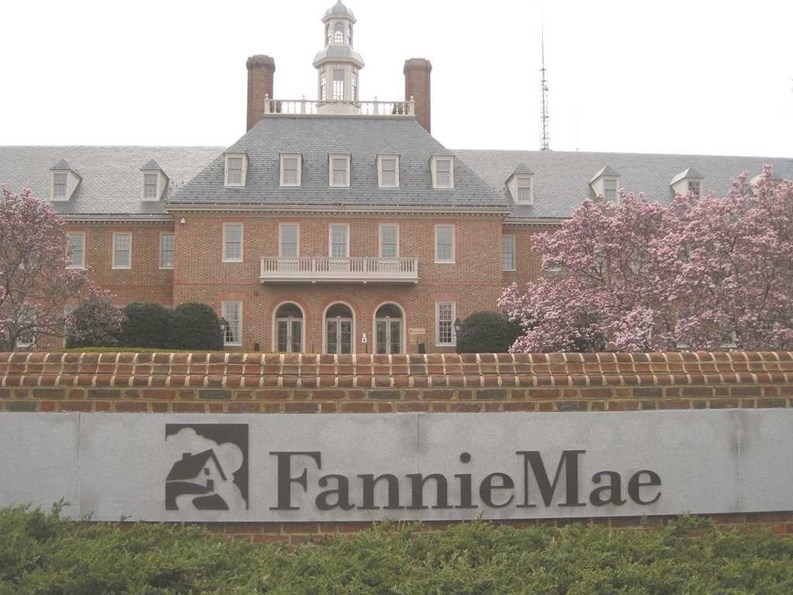One of the biggest issues in the real estate industry over the past year has been the speculation that government-sponsored mortgage programs Fannie Mae and Freddie Mac will be ending. For the past 70 years, Fannie Mae and Freddie Mac have helped countless Americans secure long-term, fixed-rate mortgages, by purchasing them from lenders and securitizing them, all with the unofficial guarantee of the federal government backing them up.
Both saw their own corporate finances collapse two years ago, amid the housing and credit crisis, and that led to the Obama administration calling for their end. During the 2008 financial crisis they collapsed into government conservatorship as a massive number of loans in its vast $5.6 trillion portfolio started to fail.
“We need to wind down Fannie-Freddie and substantially reduce the government’s footprint in the housing market,” Treasury Secretary Timothy Geithner announced in February of last year. “And that’s a process that has to happen gradually, because they are now the dominant source of housing finance, and we want to be careful that that process happen in a way that doesn't interfere with, or impede, the process of repair in the housing market.”
The Treasury’s plan is committed to doing this over a term of five to seven years, putting in place new regulations, which will allow the private sector to replace the government involvement in the housing market.
“Fannie and Freddie became scapegoats for the housing market meltdown,” says Lisa A. Magill, an attorney with Becker & Poliakoff PA, a community association law firm with offices in several states. “As a practical matter, FHA has taken the lead in origination of home loans, whether purchase, refinance or home improvement.”
What to Know
Leading experts have spent most of 2011 urging people to pay attention to developments in these programs and prepare themselves for the possible demise of, or massive changes in, these government-sponsored enterprises.
“The stakes for homeowners, homebuyers and communities are enormous,” says Community Associations Institute (CAI) CEO Thomas M. Skiba, CAE. “Rules being developed today may likely govern mortgages for the next several decades. If you live in an association or work in the community association industry, you need to understand the magnitude of these issues, keep abreast of the latest developments and weigh in when such opportunities are available.”
According to the pros, it’s generally not speculation about Fannie Mae, Freddie Mac and the FHA that is affecting condos and HOAs, it’s a lack of clarity about the guideline process that developments must go through in order to get Fannie/Freddie approval.
“The effect on HOAs and condominiums is the apprehension that there may be more difficulty maintaining liquidity in their developments, but this is nothing new,” says Orest Tomaselli, CEO of National Condo Advisors, LLC, a New York-based firm that helps condo communities navigate the loan approval process. “It seems more established HOAs and property managers tend to worry less about changes to Fannie and Freddie because they don’t perceive themselves as needing lending opportunities. This is because the majority of their condominiums are already sold and established.”
However, this is a misconception on their part. Maintaining lending opportunities allows current homeowners to resell, refinance, prevents defaults and foreclosures, and increases property equity overall. After the financial crisis hit, Tomaselli told attendees at a recent trade expo in Chicago hosted by Yale Robbins, Inc.—the parent company of New England Condominium—about 9,200 developments across the country lost their FHA approval and haven’t gotten it back.
Change is in the Offing
While the administration has gone on record telling Congress that it is “committed to ensuring that Fannie Mae and Freddie Mac have sufficient capital to perform under any guarantees issued now or in the future,” and has suggested that the federal government will still provide some “targeted assistance” for low- and moderate-income homebuyers and renters, not everyone is so sure.
“In many ways associations will benefit from stricter underwriting requirements and larger down payments,” Magill says. “Investor owners reaped the benefit of use of and/or rental income from the property while failing to pay association assessments in addition to their mortgage. Since many had little, to none, to negative equity in the property, they didn't have any incentive to honor financial obligations to the associations and backlogs in the foreclosure courts (among other things) meant they could hold on to the property for an extended period of time.”
On the other hand, there is speculation that private lenders will not be amenable to long term fixed rate mortgages, especially since the interest rate is at a record low.
“Adjustable rate mortgages increase volatility in my opinion since borrower income or cash flow may not keep up,” Magill says. “If the borrower defaults and property values remain steady (or fall even further), the association suffers.”
A recent joint report issued by the Treasury Department and the Department of Housing and Urban Development (HUD) cautioned that private markets, going forward will be the primary source of mortgage credit and bear the burden for losses.
Among changes being discussed are limiting loans to poor/middle class people, or changing how loans are insured.
“If the current administration limits loans to be available only for poor and middle class buyers, then there will be a complete gap in the market for financing availability” Tomaselli says. “Higher priced condominium developments will certainly be affected by seeing a reduction in value. Economics 101 details supply and demand. Demand will be reduced based upon the lack of available mortgage financing and cause an oversupply.”
When developments don’t seek FHA and Fannie/Freddie financing, potential buyers are limited to buying in cash only or seeking less favorable alternative methods of borrowing. This will make it nearly impossible for current homeowners to sell or refinance.
“Furthermore, uncertainty about these rule changes and changes in the way that loans are insured have an impact on new developments and on current HOAs being able to maintain liquidity and interest in their developments,” Tomaselli says. “Purchasing a condominium would become a riskier proposition for buyers, decreasing demand and further depressing the market.”
Conforming Loan Limits
As of mid-October, plans were circulating to lower the “conforming loan limit” conform from $729,000 to $625,500, and it’s expected to be debated further and carried over until next year.
Even if true, multiple research reports indicate that this will affect only a very small segment of the overall housing market. However, for more competitive housing markets where prices are higher, making it harder to achieve a loan and increasing the borrowing costs could decrease potential buyers. So, there will be less demand, which means sellers are going to feel pressure to reduce their prices.
“This naturally will affect HOAs in many condominium developments, since it will limit resale ability. It also may hurt the development’s equity because if a person needs to sell their unit to avoid being foreclosed upon, but they can’t get a buyer because of tighter lending restrictions, they may sell their unit for the outstanding loan balance, which may be less than the market price,” Tomaselli says. “This lowers the equity value within the development.”
Additionally, it may become more difficult for many borrowers to refinance into today’s lower rates, since reduced demand has caused the value of their home to decrease.
“Also of concern is that people will not ‘upgrade’ and move to a larger, more expensive home or condominium unit because they now are unable to afford a jumbo loan,” Tomaselli says. “We will also see a decreased demand for FHA financing because Fannie/Freddie are seen as the gold standard for ‘jumbo’ loan limits. Upscale communities especially will see the effects in having to drop prices, and will find it harder to find buyers, because down payments will be increased since loan limits are smaller.”
Information is Key
The best way HOAs, buyers and homeowners can prepare themselves for what is to come is by staying informed and creating relationships with industry professionals who understand the complexities and nuances of the rules and regulations.
“You should make sure your lender and consulting company is established and stays abreast of industry trends,” Tomaselli says. “A reputable project approval and condominium financing company should be able to tell you not only why your development is or is not compliant but what specifically your development needs to do to get approved by the various governmental agencies.”
Magill adds that proper budgeting and reserves are key to survival as reserve studies and capital expenditure projections must be taken into account when budgeting for current needs.
“Community leaders can take proactive steps to improve mortgage options for potential buyers,” she says. “Many condominium associations have undertaken the process to become FHA approved. Adequate reserves, insurance and attending to the maintenance/repair needs of the community are factors lenders take into account when evaluating loan-to-value ratios.”
No one knows for sure what will become of these programs and with the possibility of a new Presidential regime being elected in 2012; all anyone can do is speculate for the moment. Still, there is no denying that fear has set in and people need to stay on top of the government lending situation.
So especially in such an uncertain economy, mortgage financing is crucial to the housing market in general and to the overall health of a condo, townhome or community association.
Keith Loria is a freelance writer and a frequent contributor to New England Condominium. Associate Editor Hannah Fons contributed to this article.







Leave a Comment